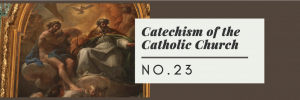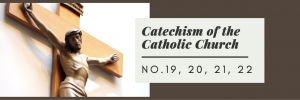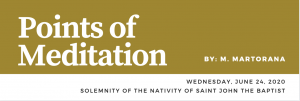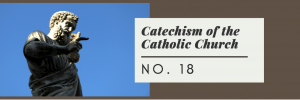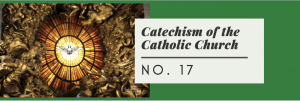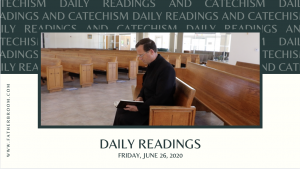
June 26 2020
Friday of the Twelfth Week in Ordinary Time
Reading 1 2 KGS 25:1-12
In the tenth month of the ninth year of Zedekiah’s reign,
on the tenth day of the month,
Nebuchadnezzar, king of Babylon, and his whole army
advanced against Jerusalem, encamped around it,
and built siege walls on every side.
The siege of the city continued until the eleventh year of Zedekiah.
On the ninth day of the fourth month,
when famine had gripped the city,
and the people had no more bread,
the city walls were breached.
Then the king and all the soldiers left the city by night
through the gate between the two walls
that was near the king’s garden.
Since the Chaldeans had the city surrounded,
they went in the direction of the Arabah.
But the Chaldean army pursued the king
and overtook him in the desert near Jericho,
abandoned by his whole army.
The king was therefore arrested and brought to Riblah
to the king of Babylon, who pronounced sentence on him.
He had Zedekiah’s sons slain before his eyes.
Then he blinded Zedekiah, bound him with fetters,
and had him brought to Babylon.
On the seventh day of the fifth month
(this was in the nineteenth year of Nebuchadnezzar,
king of Babylon),
Nebuzaradan, captain of the bodyguard,
came to Jerusalem as the representative
of the king of Babylon.
He burned the house of the LORD,
the palace of the king, and all the houses of Jerusalem;
every large building was destroyed by fire.
Then the Chaldean troops who were with the captain of the guard
tore down the walls that surrounded Jerusalem.
Then Nebuzaradan, captain of the guard,
led into exile the last of the people remaining in the city,
and those who had deserted to the king of Babylon,
and the last of the artisans.
But some of the country’s poor, Nebuzaradan, captain of the guard,
left behind as vinedressers and farmers.
Responsorial Psalm 137:1-2, 3, 4-5, 6
R. (6ab) Let my tongue be silenced, if I ever forget you!
By the streams of Babylon
we sat and wept
when we remembered Zion.
On the aspens of that land
we hung up our harps.
R. Let my tongue be silenced, if I ever forget you!
Though there our captors asked of us
the lyrics of our songs,
And our despoilers urged us to be joyous:
“Sing for us the songs of Zion!”
R. Let my tongue be silenced, if I ever forget you!
How could we sing a song of the LORD
in a foreign land?
If I forget you, Jerusalem,
may my right hand be forgotten!
R. Let my tongue be silenced, if I ever forget you!
May my tongue cleave to my palate
if I remember you not,
If I place not Jerusalem
ahead of my joy.
R. Let my tongue be silenced, if I ever forget you!
Alleluia MT 8:17
R. Alleluia, alleluia.
Christ took away our infirmities
and bore our diseases.
R. Alleluia, alleluia.
Gospel MT 8: 1-4
When Jesus came down from the mountain, great crowds followed him.
And then a leper approached, did him homage, and said,
“Lord, if you wish, you can make me clean.”
He stretched out his hand, touched him, and said,
“I will do it. Be made clean.”
His leprosy was cleansed immediately.
Then Jesus said to him, “See that you tell no one,
but go show yourself to the priest,
and offer the gift that Moses prescribed;
that will be proof for them.”
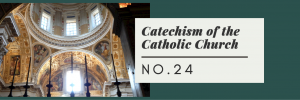
Catechism of the Catholic Church
24 By design, this Catechism does not set out to provide the adaptation of doctrinal presentations and catechetical methods required by the differences of culture, age, spiritual maturity, and social and ecclesial condition among all those to whom it is addressed. Such indispensable adaptations are the responsibility of particular catechisms and, even more, of those who instruct the faithful:
Whoever teaches must become “all things to all men” (I Cor 9:22), to win everyone to Christ. . . Above all, teachers must not imagine that a single kind of soul has been entrusted to them, and that consequently it is lawful to teach and form equally all the faithful in true piety with one and the same method! Let them realize that some are in Christ as newborn babes, others as adolescents, and still others as adults in full command of their powers…. Those who are called to the ministry of preaching must suit their words to the maturity and understanding of their hearers, as they hand on the teaching of the mysteries of faith and the rules of moral conduct.18
Above all – Charity

“For greater things you were born.” (Ven. Mother Luisita)
FRIDAY, JUNE 26TH Mt. 8:1-4 “Lord, if you wish, you can make me clean.”
- We were that leper until Our Lord made us clean by washing Original Sin from our soul in the waters of Baptism. We become that leper again every time we sin until we are washed clean in the Blood of Christ in Confession!
- Mortal sins have to be confessed! But venial sins should be confessed as well for this reason, they are like shadows in our soul that make us feel uneasy and unhappy and we don’t even know why! Examples: impatience, anger, gluttony, pride, selfishness, laziness. Also, giving into venial sin is a slippery slope that weakens our will and makes it easier to slide into mortal sin! Once the St. Peter Chanel Office is open again, you can purchase a good Examination of Conscience booklet specifying mortal and venial sins for $1.
- Given that we have not been able to go to Confession because of Covid-19 for 3 to 4 months, we can imagine our soul smelling like Noah’s Ark after being cooped up with the animals for 150 days as the waters covered the earth. Pretty foul-smelling!
- Rejoice! The Lord has taken pity upon us and a rainbow has appeared in the sky! Our Churches are open again for Mass and Confession! St. Peter Chanel currently has 24 hours of Confession time scheduled weekly!
- Let us reinvigorate our love and desire for the powerful Sacrament of Confession, the Sacrament of God’s Mercy, with the following meditation by Fr. Ed Broom. This article was featured in a homily by Fr. Wade EWTN during a livestream Mass.
TEN WAYS CONFESSION SETS US FREE By Father Ed Broom, OMV
Sadness, confusion, disorientation, darkness, anger, and often bitterness—all of these words describe the soul living in the state of mortal sin. In fact, Jesus says that sin is slavery. (cf Jn. 8:34)
Film: The Mission and an Image of Sin
In the film The Mission one character, who is portrayed by Robert De Niro, for murdering his brother is given the penance by a Jesuit priest of carrying with him a cumbersome ball of his possessions. Wherever this man who committed fratricide goes, he has to drag with him on a rope this truly burdensome baggage. After having carried out this penance for days, even climbing a mountain with it, falling down and rising again, the priest agrees that he has done sufficient penance. The priest draws close to the sinner and with a sharp knife cuts and severs the rope with the baggage and it cascades all the way down to the bottom of the mountain floor—freedom!
This slice from the film The Mission displays in one graphic scene a powerful image of what sin is like in our lives, but also the powerful effect in the soul of the sinner who repents and turns back to God through a good sacramental Confession. One of the effects of sin is a binding slavery that is like carrying a heavy weight wherever we go. The weight becomes heavier and heavier, almost to the point of being unsupportable. But then comes the transforming moment—a good sacramental Confession.
By making this well-prepared, honest, and sincere Confession the bonds are broken, split asunder and freedom is experienced—the freedom of the sons and daughters of God!
Mercy & Confession
Saint Pope John Paul II, Saint Faustina Kowalska, as well as the Angelic Doctor, Saint Thomas Aquinas, unanimously agree that mercy is the greatest attribute in the Heart of Jesus the Savior. Mercy is God’s infinite love forgiving the sinner.
There has been abundant catechesis on how to prepare for Confession, booklets on the Ten Commandments, as well as books written on the Sacrament of Confession. However, possibly not enough has been said on the many wonderful effects that are produced in the person who makes a good Confession.
This short article will focus on ten wonderful and uplifting effects that are produced in the soul of a good penitent.
1. Healing
The specific sacramental grace of the Sacrament of Confession is healing. Jesus is the Divine Physician. Sin wounds the soul! What cancer, leprosy, and disease is to the body, sin is to the soul. Every time we make a good Confession, Jesus, the Divine Physician, with His gentle, tender, and loving Hand touches our soul, pours out His Precious Blood, and there is a healing. During His public life Jesus healed the blind, deaf, mutes, paralytics, lepers, and even raised the dead. Still now, through His Mystical Body the Church, Jesus continues to heal His sick members through the priests in the confessional. It is true that Jesus saves us and heals us! Right now Jesus wants to heal your moral wounds!
2. Freedom from Slavery
As mentioned above in the scene from the movie The Mission, sin is interior slavery. Confession reverses the slavery and communicates true freedom—the freedom of the sons and daughters of God. To break the bonds of our past bad habits, our powerful addictions, our bad impulses and actions we need a powerful remedy. That remedy is direct contact with the Blood of Jesus, poured forth on Calvary that first Good Friday, but applied to every soul that makes a good Confession. Instinctively we appall physical slavery and all that this entails. Should we not have an even greater abhorrence and repugnance for the interior slavery of sin and seek freedom as soon as possible? Why not try Confession!
3. From Confusion to Peace
Another negative effect of living in sin is a real lack of peace and living in a state of constant confusion. Saint Augustine defines peace as “the tranquility of order.” Sin is total disorder—the tower of Babel within. A good Confession results in putting into practice the words of Saint Ignatius of Loyola as one of the purposes of the Spiritual Exercises, “To order the disordered.” Therefore, if you really want to experience a profound peace in the depths of your soul, why not try to make the best Confession in your life? Your disorder will give way to order, and peace will follow!
4. Freedom from a Conscience Filled With Guilt
Living with guilt is truly hell on earth! People can go crazy or be driven to suicide due to a guilty conscience. Lady Macbeth was seen constantly washing her hands. This was an unconscious desire to be freed from the guilt of bloodshed and murder. She could not live with a guilty conscience that turned out to be a moral executioner. For that reason Shakespeare truly asserted: “Conscience does make cowards of us all.” Could it be that many people have recourse to medicine, to taking pills to try to assuage and suppress the guilt that they are bearing in their conscience? Why not try Confession and experience the purity of an innocent conscience? With respect to Confession, never forget: it is free of charge. Also, there are no negative side-effects that often come about by taking medicine.
5. Joy: Rejoice in the Lord
Saint Thomas Aquinas states that all people are called to experience happiness or joy. If we look around us—at work, at school, on the road or freeway, we find all too often a lusterless, bland, and sad environment. Why is this the case if all are called to live in joy? The reason is this: many are looking for joy in the wrong places. Still more, many confuse pleasure with joy. Pleasure can be bought; joy is a fruit of the Holy Spirit! Sin produces sadness in the soul. Only God can give us true joy. For this reason Saint Paul reminds us: “Rejoice in the Lord always. I say it again, rejoice in the Lord.” (Phil. 4:4) Our Lady in her powerful hymn of praise, the Magnificat, echoes the same sentiments: “My soul proclaims the greatness of the Lord; and my spirit rejoices in God my savior.” (Lk. 1:46-47)
Catechists have told me over the years that when a child is waiting to make their first Confession, they experience fear and anxiety, but after confessing, they leave the confessional radiating joy. Do you want to experience constant joy? Why not make it a habit to go to Confession frequently!
6. The Paschal Mystery: From Death to Life
THERE IS MORE MERCY IN CHRIST THAN SIN IN US! If we have the misfortune of committing a mortal sin, we lose the grace of God and His Friendship. However, we should never give in to despair—that is the worst of sins! Like the Prodigal Son, we should return to the home of our loving Father and launch ourselves into His loving arms, and He will forgive us. Saint Therese of Lisieux stated boldly that even if she committed all the worst sins in the world, she would run and launch herself into the Father’s arms with boundless trust! The Father’s arms are like an elevator to heaven!
The great Saint Augustine, who lived a sinful life into his early thirties, stated that a good Confession is a Lazarus experience. If you remember, Lazarus died and Jesus raised him from the dead, summoning him from the tomb after he was buried for four long days. (Jn. 11:1-44) By making a good Confession we are summoned to leave the tomb of our sins and come back to a life of grace!
7. Curative and Preventive Medicine
Confession is like a medicine that heals the wounds of our soul. However, Confession can also serve as a means to prevent future falls! I remember once when I was coming down with a cold and a friend suggested that I take a couple tablets of Airborne, which I did. What a blessing! The cold that was about to overtake me for probably ten days to two weeks was halted in its tracks! The same can be said of frequent Confession! If we commit a mortal sin, then we should run to the confessional as soon as possible. Nonetheless, frequent Confession, even of venial sins, can serve as a remedy to prevent us from falling into the spiritual sickness that we call sin! We all know from experience, better to prevent a fall and a break, than to heal!
8. An Act of Humility to Crush Your Pride
As a result of Original Sin we are all infected with the Capital Sin of Pride and we often are motivated by pride and self-love. Making a good Confession can help us grow in the opposite virtue that is essential for holiness and so pleasing to God: humility. In the Diary Divine Mercy in My Soul, Jesus revealed to St. Faustina the three essential qualities of a good Confession: transparency (total sincerity and openness), humility, and obedience to the Confessor who represents Christ. It is important that when we confess, we do not confess the sins of our husband (or wife), neighbor, or others! Nor should we rationalize, justify, or gloss over our sins. Rather, humility means we tell it exactly like it is!
9. Growth in Self-Knowledge
Another huge blessing that flows from a well-prepared and well-confessed Confession is an increase in self-knowledge. The Greek philosopher Socrates stated: “The unexamined life is not worth living.” A noteworthy historian interjects: “He who does not know history is condemned to repeat the same errors.” Ignatian spirituality insists constantly on the importance of self-knowledge, knowing oneself and the movement of the spirits in one’s life.
Saint Ignatius asserted that one should never, ever leave off the daily Examen Prayer, which is directed at self-knowledge and the awareness of God’s constant presence in our life. The desert Fathers had a short but extremely important axiom: “Know thyself.” For that reason, the person who examines their conscience well, confesses well, and consults the priest-confessor sincerely, will definitely grow in self-knowledge. By knowing themselves—their virtues as well as their sins—they can avoid falling into many future sins and avoid future tragedies!
10. Fervent and Efficacious Holy Communions
Another exceedingly important effect of a good Confession is more efficacious and fervent Holy Communions. These two Sacraments that we should receive frequently are intimately interconnected. A simple analogy could be useful: try to imagine your front room glass window pane. You have failed to clean it for more than a year. Consequently, the window has become smeared and sullied by dust, dirt, and smog, put simply, the polluted environment. So the day comes when you decide to do house cleaning and on the list is to clean that front window. You go to the store to buy Windex—a powerful and efficacious window spray. There you are, generously spraying the window, then with a dry newspaper you rub and rub. What do you notice? The window is now clear and sunlight is pouring through the window! Before, the window was half opaque; now it is completely transparent and the full light of the sun can penetrate and inundate the house!
The same can be said with our soul which is like a window pane. Sin sullies, besmirches, and dirties our soul. With Confession, our dirty soul is cleansed with the Precious Blood of the Lamb of God who takes away the sins of the world. Our soul becomes pure, clean and transparent. Then when we receive Holy Communion, Jesus who is truly the Light of the world, like an atomic bomb explodes and radiates light so that the light of Jesus’ Presence inundates the entire room of our soul. For that reason Jesus said, “I am the Light of the world” (Jn. 8:12); then He said, “You are the light of the world.” (Mt. 5:14) Thus the end result of frequent and worthy reception of these two sacraments, Confession and Holy Communion, is holiness! We are able to obey and put into practice Jesus’ command: “Be holy as your heavenly Father is holy.” (Mt. 5:48) And, with Jesus, we become a light to others!
Conclusion
Saint Pope John Paul II made this comment with respect to Our Lady and the Sacrament of Confession. He said that the Marian Sanctuaries—Lourdes, Fatima, Guadalupe, etc.—are spiritual clinics. In other words, we go to Marian Sanctuaries to meet Jesus, the Bread of Life, in Mass and Holy Communion, but also we meet Jesus who is the Healer of our heart, mind, and soul in Confession!
Let us turn to Our Lady whom we invoke as “Mother of Mercy” and “Health of the Sick” to help us live out life to the max by having frequent recourse to the Sacrament of Confession, the true expression of the loving and merciful Heart of Jesus!

